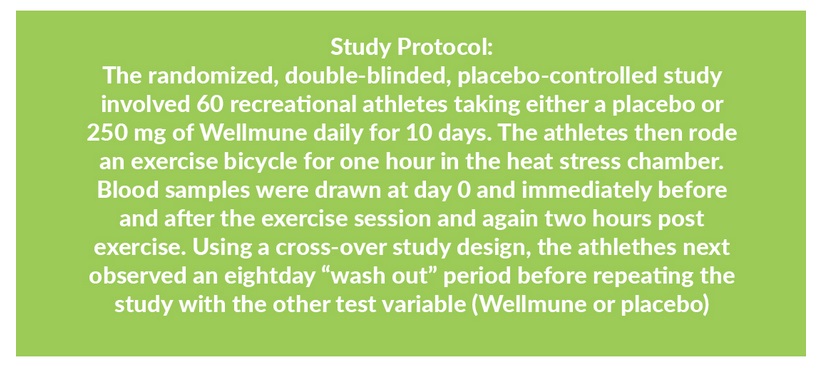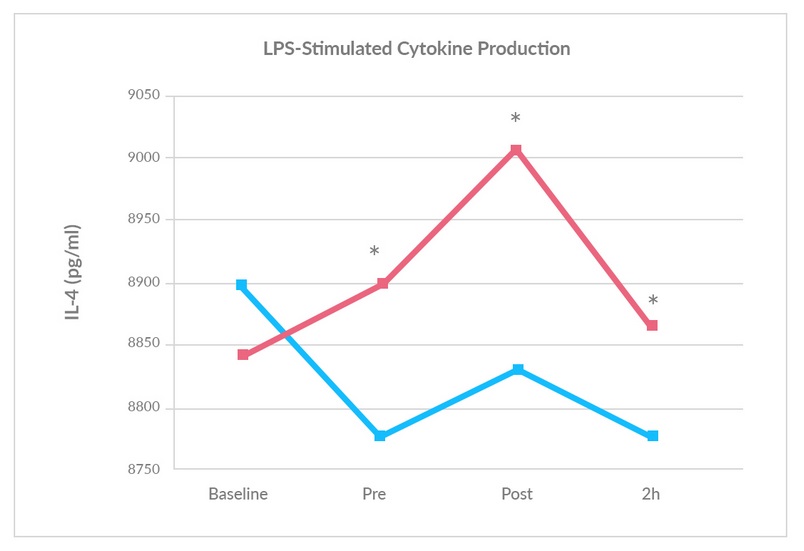|
|
|
Wellmune Research - Exercise Stress Last Updated: 02/23/2023 |
 Immune Suppression Associated with Strenuous Exercise Reduced with Wellmune®
The effectiveness of the immune system drops sharply below its normal state two to six hours after strenuous exercise and then gradually recovers within 24 hours. “During this ‘open window’ period, the athlete is more susceptible to infection, which may result in lost training time as well as missed work or school,” said Brian McFarlin, Ph.D., FACSM, Associate Professor of Exercise Physiology, Nutrition, and Immunology. Study participants also had higher levels of key cytokines (IL-2, IL-4, IL-5 and IFN gamma) following Lipopolysaccharide (LPS) stimulation when taking Wellmune®. LPS is derived from gram-negative bacteria and used to mimic a foreign challenge to stimulate an immune response. “The effect of Wellmune® on LPS-stimulated IL-4 and IL-5
production suggests that leukocytes were primed for higher plasma
cytokines that directly mediate innate and humoral dependent immune
responses” said Dr. McFarlin. “Our lab has tested numerous compounds but Wellmune® is the first to prevent alterations in monocyte and key
cytokines following high intensity exercise.”  (*) Indicates statistically significant difference (P<0.05) between Wellmune® and placebo.
Carpenter KC, Breslin WL, Davidson T, Adams A, McFarlin BK. (2013) Baker’s Yeast Beta-Glucan Supplementation Increases Monocytes and Cytokines Post-Exercise: Implications of Infection Risk? British Journal of Nutrition 109:478-486. Tags:
Wellmune, Immune Health Basics, Kerry International, Beta Glucan, Beta 1, 3D Glucan, Wellmune Beta Glucan, Glucan 300, Exercise, Stress
|